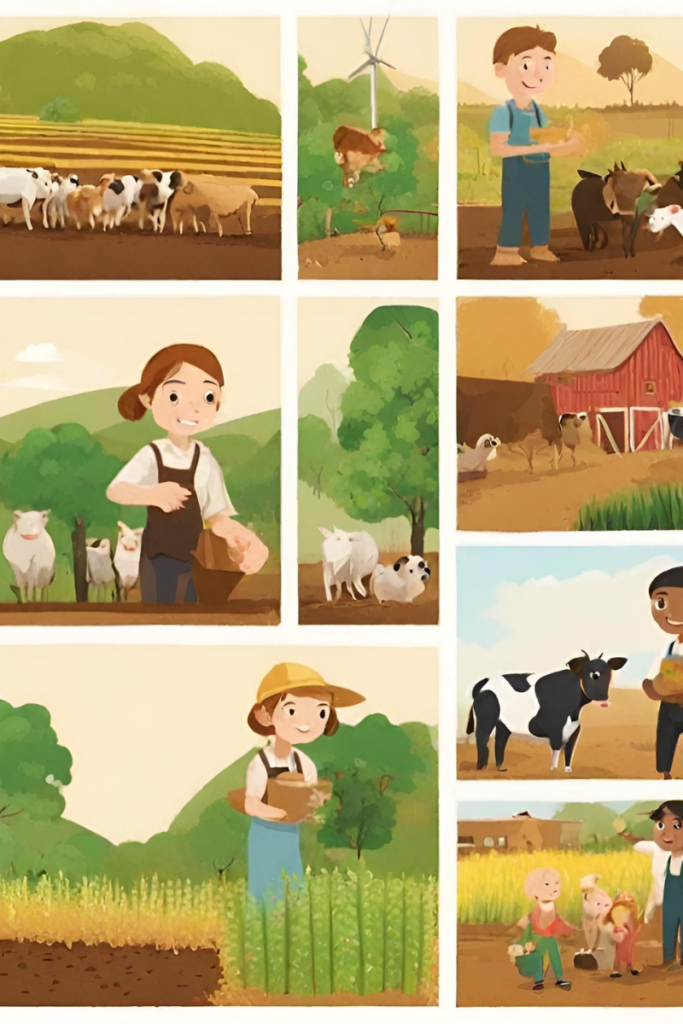
Introduction
Over the years, there has been a surge in farm-based educational programs designed to engage youth in agricultural activities and environmental education. These programs aim to provide hands-on learning experiences for young people, cultivate their appreciation for nature, and foster environmental stewardship. In this article, we will delve into the impact of farm-based educational programs on youth development and environmental awareness, drawing on research, case studies, and real-life examples.
Youth Development and Agricultural Education

Engaging in farm-based educational programs can have a transformative impact on youth development. According to the Journal of Extension, participation in agricultural education programs has been linked to positive youth outcomes such as improved problem-solving skills, enhanced leadership abilities, and a greater sense of responsibility. Through hands-on activities such as planting, harvesting, and caring for animals, young participants learn valuable life skills and develop a strong work ethic. Furthermore, these programs can instill a sense of pride and accomplishment in youth as they witness the fruits of their labor through the growth of crops or the success of their animal husbandry efforts.
-
- Research has demonstrated that youth engaged in farm-based education programs show higher levels of self-esteem and confidence.
-
- By learning about sustainable agricultural practices, youth develop an understanding of the importance of responsible land stewardship and the preservation of natural resources.
-
- Participation in such programs fosters a sense of belonging and community among young people, as they collaborate with peers and adult mentors in a shared learning environment.
Environmental Awareness and Stewardship
Farm-based educational programs play a crucial role in fostering environmental awareness and stewardship among youth. As young participants immerse themselves in agricultural activities, they gain a deep appreciation for the interconnectedness of ecosystems and the importance of biodiversity. Through guided exploration of natural habitats, ecological workshops, and wildlife observation, they develop a better understanding of the delicate balance of nature and the impact of human actions on the environment.
Furthermore, farm-based programs often incorporate lessons on sustainable farming practices, conservation, and the protection of wildlife habitats. By learning about the principles of organic farming, composting, and integrated pest management, youth gain practical knowledge of environmentally friendly agricultural methods. They also become advocates for sustainable living and environmental protection in their communities.
-
- Studies have shown that youth engaged in farm-based educational programs demonstrate greater environmental responsibility and are more inclined to adopt eco-friendly behaviors in their daily lives.
-
- By participating in environmental conservation projects, such as tree planting initiatives and habitat restoration efforts, young people develop a sense of agency and empowerment in contributing to a greener, more sustainable future.
Case Studies and Success Stories
There are numerous examples of farm-based educational programs making a tangible impact on youth development and environmental awareness. The Food Project, a nonprofit organization based in Massachusetts, runs youth development programs that integrate sustainable agriculture, leadership development, and food access initiatives. Through their hands-on farming experiences and community engagement efforts, participants develop valuable life skills and a strong sense of social responsibility.
In another case, the National 4-H Council’s “Agri-Science Teen Ambassadors” program equips young people with the knowledge and skills to address environmental challenges through agricultural science. Participants engage in research projects, environmental education activities, and outreach initiatives to promote sustainable agriculture and environmental stewardship in their communities.
Farms are disappearing
Conclusion
Farm-based educational programs have a profound impact on youth development and environmental awareness. By providing hands-on learning experiences in sustainable agriculture and environmental stewardship, these programs empower young people to become responsible, environmentally conscious citizens. As we continue to support and expand farm-based educational initiatives, we can nurture the next generation of environmental leaders and foster a deep-seated appreciation for the natural world.
Get in touch today if you are looking for a farm based education program, likewise if you want to organize a farm based education program we would be happy to showcase it on Farmlike
 Docs
Docs
 Support
Support




















 Home
Home  Whishlist
Whishlist  Cart
Cart 

















